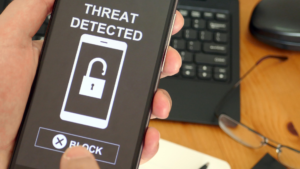While many of us can’t even remember what the business world was like in the pre-Internet era, the transfer of so much of our personal and professional information into a virtual online world is really still in its infancy compared to the other forms of communication that have existed for centuries.
Why is this important? Because we’re still assessing the ramifications of this tech-dominated culture, and how each new advance will impact individuals and organizations. For those of us dedicated to securing the data that exists in a constant state of flux, staying ahead of this curve is one of the challenges we take most seriously.
Recently, CNN reported that Google was hard at work on a facial recognition feature, which would be achieved by storing pictures of millions of faces in a photographic encyclopedia database. That means you could take a picture of someone, including a stranger on the street, and then upload that photo and receive relevant information about that person, including his or her name, email address and phone number. The feature could be introduced as a new app or as an update to an existing tool, such as Google’s image search engine.
In theory, a person would have to approve the use of their likeness in this type of venture. But individuals and companies who do not pay attention to online security, or hire a specialist to create a safe environment for them, may have already had their security compromised by more than one website. We all thought Google Maps with those Street Views were a great idea, until some enterprising criminals used the app to case empty houses.
How would Google acquire the photos? Their web bots have already crawled across trillions of Web pages to deliver results to search engine queries, including Facebook pages, Flickr and other photo-sharing sites.
One implementation of facial recognition software is already in existence – it’s called Recognize Me and it was made available as an iPhone app to plug a potential security hole. If your phone is stolen, its front-facing camera can scan the identify of the person holding it, and will not open if that face does not match the owner’s.
As to the larger facial recognition feature, a Google representative has responded to the CNN story, saying it was “unlikely” they will create such a database, and that doing so was “crossing the creepy line.” The network is standing by its reporting.
Stay tuned – this one could get interesting.

—————————————————————————————————————————————————–
Get into contact with us;
*By Filling Out the Form Below
[contact-form-7 id=”3812″ title=”Blog Lead”]
*Phone: (888)-282-0896
*Email: sales@aurorait.com



